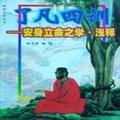Liao-Fan's Four Lessons Audio Book The Fourth Lesson: The Benefit of the Virtue of Humility [Narrator]: The third lesson taught us the ways to accumulate kind deeds. Naturally, it would be best if people would practice kindness, but as humans, we are social beings. It is impossible to not come in contact with others in society; therefore, it is important to know the ways to improve our persons in dealing with others. The best way to do this is to follow the virtue of humility. A humble person in society receives support and trust from the general public. If a person understands the virtue of humility, he is the person who also understands the importance of constant self improvement. This constant self improvement not only includes the search for higher knowledge, but also encompasses the need to be more humane, better performance in daily duties, and improved communication with friends. Many benefits and rewards result from behaving with an understanding of humility. This lesson focuses on the benefits of virtue and humility, proven by Liao-Fan's own experiences. You will be greatly benefited if you can thoroughly contemplate and understand these teachings.
[Liao-Fan]: In the I Ching/Book of Change, the hexagram of Humility stated, [Narrator]: The law of heaven takes from those who are arrogant and benefits those who are humble. The law of earth will not allow those who are conceited or self-content to always remain that way, but will bring change upon them. The humble will not wither, but shall be replenished, just as flowing water fills up lower places on the ground as it passes by, making up the differences. The law of spirits and gods bring harm to those who are arrogant and fortune to those who are humble. Even the laws of men despise the arrogant and like the humble.
[Liao-Fan]: Therefore, heaven, earth, spirits, gods, and people all prefer humility over arrogance. In the I Ching/Book of Change, the sixty four hexagrams talk about the constant changes and interactions of heaven and earth, ying and yang. The book teaches a person how to become more humane. Every hexagram contains both good and bad outcomes. The bad outcomes of a hexagram warn people to stop doing evil and to practice kind deeds. The good outcomes of a hexagram encourages people to diligently improve themselves and strive to be better. Only the Humility hexagram contains all good outcomes and no bad outcomes. The Chinese Book of History has also said, [Narrator]: A person's arrogance will bring him harm; and his humbleness will bring him benefit. [Liao-Fan]: I often went to take the exams accompanied by others, and every time I would meet scholars who were very poor. I noticed that before they succeeded in passing the exams and became prosperous, their faces showed such humility, peace, and harmony that I felt I could almost hold that quality in my hands.
[Liao-Fan]: Several years ago, I took my imperial exam in Beijing. Among the ten applicants from my village, Ching-Yu Ding was the youngest and extremely humble. I told one of the applicants, Jin-Po Fay; that this young man would definitely pass the exam this year. Jin-Po Fay asked, [Jin-Po]: How can you tell? [Liao-Fan]: I said, 'Only those who are humble are qualified to receive fortune. My friend, look at the ten of us; is there anyone as honest, generous, and never tries to come in first, as Ching-Yu? Do you see anyone who is always respectful, tolerant, careful and humble like Ching-Yu? Do you see anyone like Ching-Yu, who, when he is insulted, does not talk back, or who, when he is slandered, does not argue? Any person who can achieve such a level of humility will receive protection from the heaven, earth, and spirits. There is no reason he will not become prosperous.' Sure enough, when the test results came out, Ching-Yu Ding passed.
[Liao-Fan]: One year in Beijing, I was staying with my childhood friend, Kai-Zhi Fung. I noticed that he always carried himself in a humble way, and had a kind and accommodating appearance. He was not a bit arrogant, which was an immense change from his childhood ways. Kai-Zhi had a friend named Ji-Yen Li who was straightforward and honest. Ji-Yen often scolded him on his mistakes, but Kai-Zhi always accepted the accusations calmly without talking back. I told him, 'Just as there are signs which warn of coming misfortune, we can see that prosperity comes to those who have cultivated the cause for it. Heaven will help those whose hearts are humble. You, my friend, will definitely pass the imperial examination this year!". Later on, he indeed passed the exam.
[Liao-Fan]: There was a young man from San-tong Province named Yu-Fong Zhou who passed the first level of imperial examinations before he was even twenty. Unfortunately, try as he might, he could not pass the succeeding exams. When his father was moved to another post in the government, Yu-Fong went with him, and came to greatly admire a well-known scholar in that village named Min-Wu Chian. Yu-Fong brought his own essays to see this man. He had no idea that Mr. Chian would pick up his calligraphy brush and blot out his entire essay. Not only was Yu-Fong not angry, he sincerely accepted all of Mr. Chian's corrections and immediately changed his paper accordingly. A young man who could be that humble and showed such willingness to improve himself was very rare indeed. The following year, Yu-Fong passed the imperial examination.

